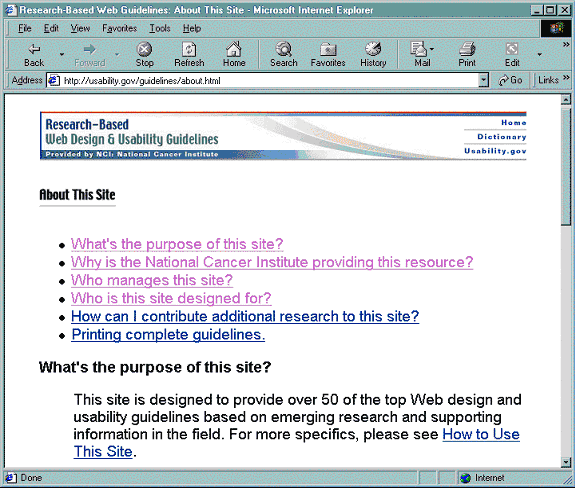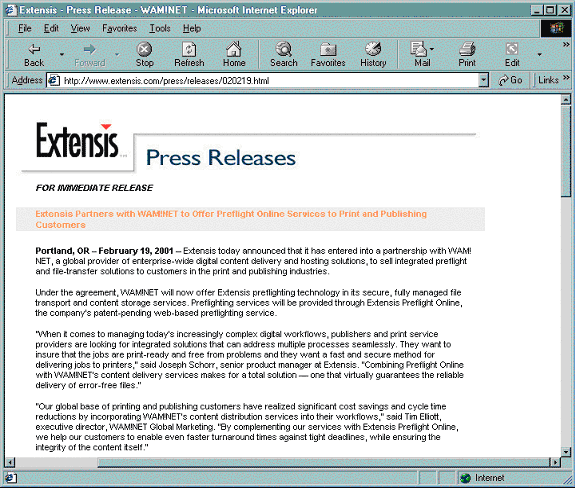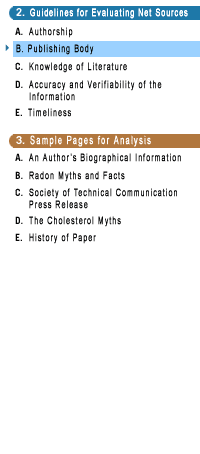Considering who is responsible for a site will help you understand whether the site's information is potentially biased. Ask yourself:
- Is the publishing body reputable in the field? If you cannot readily identify the publisher, look for clues to the publisher's identity in the site's headers and footers.
- Is the purpose of the site clear? If the purpose of the site is to help the organization sell products or further a political agenda, the information on the site is likely to be biased.
|
 |
|
This page provides detailed information regarding the organization responsible for publishing it and the purpose of the site.
http://usability.gov/guidelines/about.html

|
- Does a conflict of interest exist for the publishing body and the information presented? Many sites exist solely to provide positive public relations and advertising for the publishing body. For example, Web sites for corporations and other organizations are likely to promote their own interests and avoid publishing information critical of those corporations and organizations. A pharmaceutical company's site is likely to present information from physicians supporting the company's products, but those physicians are likely to be employed by the company or have some other sort of business relationship with the company.
|
 |
A press release by a corporation is possibly biased and, thus, a questionable source of information.
http://www.extensis.com/press/releases/020219.html

|



